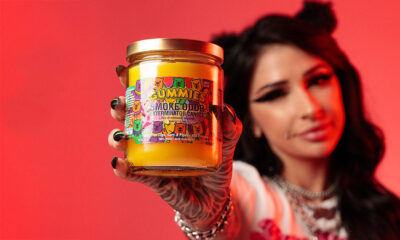
Grow
Will Hawaii Ban Home Grows?
State Representative Marcus Oshiro wants to keep marijuana away from minors and says that home growing would undermine the viability of dispensaries.
President Barack Obama visits his home state of Hawaii each Christmas with his family. This past December, an impromptu hike and interaction with surprised local hikers led to one memorable constituent admonishment:
“Legalize it on your way out!”
Hawaii was an early state to make pot legal – it happened in 2000, somewhere during the Choom Ganger-in-Chief’s run as an Illinois legislator. However, only later this spring is the state finally approving dispensary licenses for sale to medical patients.
State Representative Marcus Oshiro, an Oahu Democrat, has introduced a series of interrelated bills to the legislature aimed at regulating elements of Hawaii’s medical marijuana system.
His first bill, HB 1680, has drawn the most controversy. It bans home growing. Instead, medical patients would have to purchase all of their medicine in dispensaries. The Department of Health will be announcing eight licenses by April 15, and those dispensaries may open by July 15.
The rationale for the bill, Oshiro said, was to keep marijuana away from minors. The bill also says that home growing would undermine the viability of dispensaries.
To blunt criticism from Americans for Safe Access and fellow state representatives that low-income patients, who represent a sizable portion of the states medical cannabis patients, would not be able to afford dispensary prices, Rep. Oshiro introduced HB 2455, which would establish a system of price controls to assist those patients. In a reply to Cannabis Now, he said that Washington DC had a similar policy and suggested Keith Stroup, national legal counsel for the National Organization for the Reform of Marijuana Laws, would agree.
“In the District of Columbia, they included a provision under which the government subsidizes the cost of medical marijuana for low-income patients,” Stroup told Cannabis Now. “That is an interesting, far more targeted way to assure affordability.”
A third bill, HB 1677, directs the state’s medical board to ensure the state’s doctors cannot make recommending marijuana more than a fraction of their practice. Oshiro said the purpose of this bill was “to avoid a similar overuse of powerful pain killing medication, i.e., Oxycontin.” Although he did not say why marijuana, a drug that has never killed anyone, should be equated with powerfully addictive opiates, directing a state’s medical board to pay attention to doctors who recommend marijuana is consistent with any medical board’s mission: overseeing the professionalism of any doctor.
Despite Oshiro’s credited attempt to modify his bill if it looks like the DC model, critics remained steadfast that they opposed the ban on home growing as bad policy.
Amanda Reiman, Manager of Marijuana Law and Policy for the Drug Policy Alliance, acknowledged that while price caps in and of themselves aren’t something her organization opposed, it was still “way cheaper” to grow at home regardless of how the price is capped or subsidized. This is why Oshiro’s bill argues that the dispensary system will be underused if home growing remains an option.
Carl Bergquist, executive director of the Drug Policy Forum of Hawaii, told Cannabis Now that even if one sets aside the issue of affordability–on which the group does object to HB 1860–the issue is one of fundamental fairness.
“Hawaii delayed the creation of a dispensary (system) for 15 years.” In the vacuum of that interim period, he said, an incomplete system came to be relied on by many users who adapted and to whom “we owe continuity.”
“Moreover, many have experimented to grow the right strain that best deals with their conditions. Dispensaries near you may not always have the medicine you need period. Price is immaterial then.”
HB 1680, even when combined with HB 2455, amounts to “making getting medicine harder for patients,” said Bergquist.
Although Stroup conceded the DC model for subsidizing medicine for low-income patients was an intriguing one, he pointed out up front “NORML has always supported the right of an individual to grow their own marijuana, whether for medical or recreational purposes.”
NORML opposes HB 1680 for this reason. Stroup echoed Bergquist’s argument that patients who have come to rely on particularly effective strains for their conditions may not have their needs met by a particular dispensary; to start, there will only be a few dispensaries scattered around the islands.
“Americans have the right to make up to 50 gallons of beer in their basement, but few actually go to the effort to do that,” he said. “The same is true with the personal cultivation of marijuana. Consumers should demand the right to grow their own marijuana, but only a small percentage of smokers will exercise that option once legal dispensaries are available.”
All three bills are currently pending in the Hawaii House Health Committee.
Should home growing be outlawed? Who do you think has the best argument and why? Share in the comments below.


























